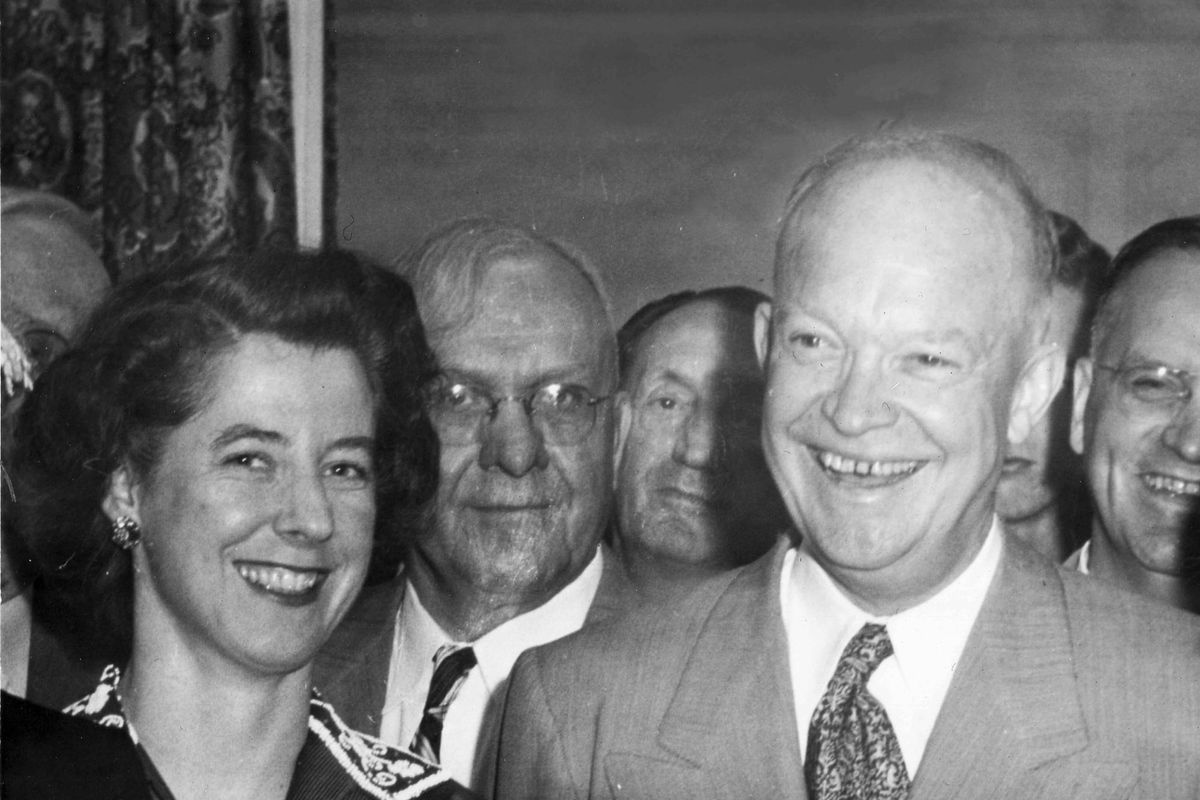A president who has never held office? Eisenhower was the last

The last time we elected a president who had previously never held elected office at any level, our country liked Ike.
Dwight David “Ike” Eisenhower was the 34th president of the United States, serving two terms from 1953 until 1961. He rose to international prominence as a five-star general in the U.S. Army during World War II, serving as supreme commander of the Allied Forces in Europe.
From George Washington to Ulysses S. Grant, war heroes moving on to lead this country weren’t a stretch, though it also wasn’t something that had happened in more than 75 years when Eisenhower took office after defeating Democratic candidate Adlai Stevenson.
So, what kind of leader was Eisenhower once he entered the Oval Office?
Those opinions have changed greatly over the years. Despite being elected twice, while in office the Kansas native was widely perceived as being a little too hands-off, with assistants and cabinet members wielding much power.
The photos often shown of Eisenhower in that era were of an outdoorsman who loved to golf and fish. In 1962, a poll of noted historians placed him as barely an average president.
But those views have changed as more and more documents have been released to his presidential library in Abilene, Kansas. Those papers paint the picture of an engaged commander in chief well-versed on the issues of the day, relying on both shrewd and practical solutions.
Among presidents who have served in the last 75 years, Eisenhower now ranks only behind Franklin D. Roosevelt and Harry S. Truman, while generally being considered as one of this country’s 10 best presidents by modern historians.
History now shows him as a leader with a deft understanding of the political power gained when working behind the scenes.
“Leadership is the art of getting someone else to do something you want done because he wants to do it,” Eisenhower said.
As civil rights were reaching a boiling point in the late 1950s, many thought Eisenhower wasn’t doing enough to guide the nation through the movement. Yet, as the desegregation of schools began, Eisenhower sent troops into Little Rock, Arkansas, to not only assure the compliance with federal court orders, but to make it clear where he stood.
He also worked quietly to discredit anti-Communist Sen. Joseph McCarthy and organized the desegregation of the Armed Forces. “There must be no second-class citizens in this country,” Eisenhower wrote at the time.
His time in war-torn Europe helped solidify some of his reasons behind leading the development of this nation’s interstate highway system in the 1950s. More importantly, Stephen Ambrose noted in his biography of Eisenhower, the project was “a public-works program on a massive scale, indeed the largest public-works program in history, which meant that the government could put millions of men to work.”
It was quiet authority that became signature to Eisenhower’s style. “You do not lead by hitting people over the head – that’s assault, not leadership,” he once noted.